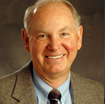Commentary on James 3:1-12
“Not many of you should become teachers.” So the “teaching preacher” or “preaching teacher” launches this section of our sequential reading in James over several Sundays.
Though the whole of James breathes deeply from the biblical wisdom tradition, today’s reading reflects that tradition as deeply as any part of the teacher’s address to the hearer.1 There is a certain irony in the teacher’s warning of course, in that the one who should know better dares to assume the stance of a teacher, and along with that role assumes the risk of the greater standards of judgment that await those who are “in the know.” When it comes to understanding the ways of the world and the “mistakes” that human beings are so prone to make this teacher is part of the territory.
Wisdom and accountability go together
Wisdom flows from experience, both individual and collective. The eye of wisdom looks at the world and sees everywhere examples and experiences containing instructive lessons the one who has the eyes to see and the wisdom to learn from what lies around us in God’s creation. Nor is such learning an individual enterprise; the author’s “we” (James 3:1, 2) suggests it represents the collective sense of the broad community of tradition gained from examination of the world.
Acknowledging the gifts of God
The number one quality of wisdom is its capacity to acknowledge the fundamental reality that all of creation is dependent upon the gifts of God’s grace and mercy. Two passages especially in James express this conviction and serve as a kind of mantra that undergirds every other reflection in the letter: “Every generous act of giving, with every perfect gift, is from above, coming down from the Father of lights, with whom there is no variation or shadow due to change” (James 1:17); and “God yearns jealously for the spirit that he has made to dwell in us” (James 4:5). As the giver of all the good gifts of creation, God refuses to stand at a distance. God’s grace hovers over and guards jealously those gifts with which creation has been endowed (James 4:6). So the teacher acknowledges an accountability that is aware of God’s longing for a creation that makes perfect (full or complete, James 3:2) acquisition and use of the good gifts that have been given to it.
Looking squarely at creation’s story
Faithful wisdom does not avoid but looks squarely and honestly at the story of human existence. It is a peculiar capacity of human wisdom to see underneath the surface and to acknowledge the great irony of human existence, an irony that would be somewhat humorous, if it were not so tragic and so personal. Given the rich extravagance of God’s gifts, humans still are so prone to act in ways that betray or surrender the endowments of creation — “mistakes” the author calls them (James 3.2). The importance of keeping these excesses or mistakes in check is illustrated by familiar examples from our common daily life — the use of bridles for horses, and rudders to control the direction of ships. Part of the delight of the teacher is to call clever attention to the contrast — that such comparatively large bodies can be controlled by such a seemingly meager appendage.
A case in point: the tongue
And now as the supreme example and one perhaps closest to home, the author turns to examine the irony in the human tongue. At the heart of God’s creation story we hear of the power of God’s “Word” to bring about all that exists. It is God’s Word of promise that has established, restored, and sustained God’s rich creation and a faithful people. Among God’s gifts to humans is the ability to participate in that word, both through its power to create and sustain human community, and its ability to speak God’s word of promise to one another.
Such capacity can hardly restrain what now becomes a kind of poetic rehearsal of the images and powers of the tongue, to be noted especially in the contrasts of size and power. The hearers’ imagination is teased out in contemplation of this “small member” capable of “great exploits.” Our fears, too, are tapped: “the tongue is a fire.” Carefully chosen images arouse our emotions and at the same time call forth the richness of human knowledge of the extent of creation: the human body, iniquity, stains, cycle of nature, the fires of hell, all the species of air, land, and sea, the ability of humans to tame the world for its use — the whole culminating in a telling yet almost despairing turn of irony: we can tame the whole world, but no one can tame the tongue, this restless evil, full of deadly poison! (James 3:5-8).
Blessing and curse
For the teacher of wisdom, the most serious aspect is to be observed in human behavior both in its address to God and in its relations with other human beings. If the purpose of God’s gifts of creation is that we should live in accord with the double command of scripture: to love God with our whole heart, and to love our neighbor as ourselves, then the tongue bears testimony to the fact that as humans we have not lived up to the potential of God’s gifts and purpose. “With it we bless … and with it we curse.” “From the same mouth!” (James 3:9-10). Unbelievable! The author invites us, as it were, to gasp for breath at the shocking wonder of it all. Again it has to do with the Word, and our words. They bind us in blessing and worship of the creator, and they call us to speak congruent words of blessing to one another in community. Yet our words so often fall short. With the same mouth we curse and harm those who like us are made in the image of God. There is such a thin line between blessing and cursing. The picture is immediately a sobering one, and intentionally so. We will ask if this is the sum total of what wisdom has to teach us. Perhaps we would rather not know!
This ought not be so!
Still the author offers no easy fixes, no quick solutions to the sorry picture presented. Part of the solution of course is the hope that naming the problem — calling attention to the sorry state of a human reality that is so far from the intentions of God’s creation — would call us to renewed efforts to live in ways that are more appropriate to God’s purposes. The author muses upon other areas of creation — springs that yield fresh water, fig trees that produce consistent fruit — suggesting a creation that is elsewhere consistent with the gifts with which it has been endowed. As human creatures, the very culmination of God’s creation, can our lives exhibit any less a behavior that is consistent with the gifts with which we have been endowed?
In today’s world we may have grown accustomed to looking at the world around us and noting that “things are not the way they should be.” It is possible that, given the seeming overwhelming scale of the problems, we are tempted to imagine that there is no way that the problems can be addressed or that things can be turned around for the better. Yet the teacher of wisdom calls us back from a counsel of despair. We are invited to acknowledge that in God’s continuing gifts of creation, in even the use of the smallest of endowments, like the tongue, in the power of words and communication, there resides also that power through which God working through us can change both ourselves and the world around us.
Notes:
1 For further reading, see the summer 2015 issue of the journal Word &World, which is devoted to the book of James, and in particular my article in that issue: “A Mirror of Identity: Implanted Word and Pure Religion in James 1:17-27” Word & World 35/3, p. 213-221.


September 13, 2015